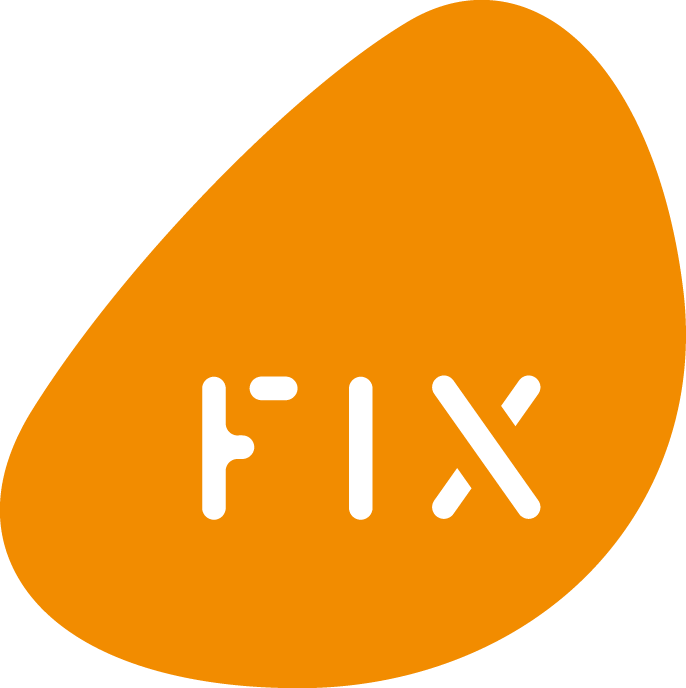FIX EAST VILLAGE, TIPS, YOGA, MASSAGE

AS PART OF NATIONAL STRESS AWARENESS MONTH, MASSAGE THERAPIST, JANINE WOODCROFT TALKS ABOUT THE WAYS YOU CAN REDUCE STRESS LEVELS, INCLUDING HOW MASSAGE CAN BE SUCH AN IMPORTANT PART OF STRESS MANAGEMENT.
The impact of the Covid-19 pandemic has certainly has had an impact on all of us whether that’s because we’ve not been able to see our loved ones, being unable to do the things we love, uncertainty around the future or the fear of the virus itself. Luckily we have light at the end of the tunnel with restrictions easing, more people being vaccinated and sense of normality on the horizon. This may give us some hope, but stress is still very much effecting us, the Stress Management Society carried out a study of 2000 people in January 21 and found that:
– 65% felt more stressed than usual
– 53% felt more anxious than usual
– 43% felt more depressed than usual
Those are some big numbers, and tell us that even if you’re not experiencing stress or anxiety yourself, you probably know someone who is.
WHAT ARE THE SYMPTOMS OF STRESS?
When we’re stressed, our bodies and minds are in a state of fight, flight or freeze mode which is our Sympathetic Nervous System (SNS) kicking in to protect us from danger. This system was designed to protect our ‘cave-man’ ancestors from predators such as a wolf: stress was a lifesaver! In the modern age the nervous system doesn’t distinguish between a wolf or your boss! So we can be in a continuous state of stress for hours, days, months and even years, causing symptoms such as:
- Lack of sleep/too much sleep
- Heart palpitations
- Rapid/shallow breathing
- Digestive issues
- Irritability/nervousness/anxiety
- Brain fog
- Tight/painful muscles
- Low immune system/frequent colds
It’s so important that we have the tools to manage our stress and prevent these symptoms, especially in times of uncertainty when life feels very much as if its out of our control.
SO HOW CAN WE HELP MANAGE OUR STRESS LEVELS IN THIS TIME OF CONSTANT CHANGE AND UNCERTAINTY?
The good news is, although we may not be able to change our circumstances and the world around us, we have the ability to control our nervous system and reactions to stress through various tried and tested methods and techniques. You can start by doing one or two things or try them all and see what’s successful for you.
Massage – can be one tool to help do this and to help activate our Parasympathetic Nervous System (PNS) and put us back into ‘rest and digest’ mode. When we’re stressed, especially long-term, the muscles are constantly ready for action, ready for fight, flight or freeze, this can cause tension in the muscles (sore neck and shoulders anyone?), which can lead to headaches, aches and pains, locked jaw, restricted breathing, and disconnection from our bodies (are you up in your head all the time?).
Through healing and soothing touch in a safe space, the body and mind is given permission to relax and the PNS activated. Massage can help to bring your awareness out of your head and back into your body, this is when you may notice where you’re holding your tension if you haven’t noticed before! And through deeper massage we can work on releasing knots, tight areas and this stored tension due to stress. We can even work with the breath during your massage to encourage further relaxation of mind and release in the body.
A recent study for the BBC programme, Trust Me I’m a Doctor, showed that subjects had a 70% increase in white blood cell count after an hour’s massage, why’s this good? White blood cells (T-lymphocytes) power our immune systems, fighting off bacteria, viruses and basically keeping us well! Another benefit of massage!
Breath Work – we can actively change the state of our nervous system through ancient yogic breathing techniques, known as Pranayama. You don’t need a special outfit or equipment, just yourself. Just by stopping and simply taking fuller, longer breaths for a few minutes each day we can start to tell the body to calm down. How about trying this now? Find a comfortable seat, sitting up straight, let the eyes close or become soft and take a moment to tune into your breath, notice its quality without trying to change anything. Start to take a fuller inhale through the nose, all the way into the belly for a count of 4, and then slowly exhale for a count of 4, again through the nose. Repeat for 3 to 10 minutes focusing on evening out and expanding your breath without strain. Notice how you feel afterwards.
Movement – Whether its getting out in nature, going to the gym (when they’re open) or doing an online yoga practice, movement can be a fundamental tool in de-stressing. I often here the phrase ‘I’m not flexible enough to do yoga!’, you don’t need to be flexible to practice yoga, this comes with time. So finding a beginners or fundamentals class is a great place to start if you want to learn the basics of the physical practice. There’s also more to yoga than making shapes, you’ll soon find out that the moving, breathing, mindfulness and mediation that are encompassed in yoga can have such a positive affect on your wellbeing. Once you’ve found a teacher and style that suits you, you’ll be well on your way to managing stress.
Mindfulness and meditation – there are so effective many techniques out there, and it doesn’t have to be complicated. Start with downloading an App such as Headspace or Calm to guide you through some practices so you can find one that works for you. Mindfulness and meditation enable us to tune in and observe our thoughts, patterns and behaviours rather than getting caught up in them.
“Mindfulness not only makes it possible to survey our internal landscape with compassion and curiosity but can also actively steer us in the right direction for self-care.”
― Bessel A. van der Kolk, The Body Keeps the Score
Talk – Reach out to trusted friends, family or a loved one, sharing what you’re going through and sharing your vulnerabilities can make such a difference, you’ll find there are others who are in the same boat, and people who can support you. Everyone is worthy of support and its ok to ask for help. If you feel you need professional support and advice, talk to your GP or reach out to a trained counsellor or therapist.
“Vulnerability is the birthplace of love, belonging, joy, courage, empathy, and creativity. It is the source of hope, empathy, accountability, and authenticity. If we want greater clarity in our purpose or deeper and more meaningful spiritual lives, vulnerability is the path.”
― Brené Brown, Daring Greatly
Diet – Its easier said then done to change your diet, but reducing the amount of your caffeine, sugar and alcohol intake in your daily diet can be helpful, especially when it comes to managing perpetual cycles of stimulant induced highs and lows.
Switching off – With being at home much more we have more time than ever to scroll and swipe. We’re bombarded with news, articles and information, never in the history of humanity have we had so much access to information – it’s overwhelming. Can you make time each day (especially before bed) or each week to switch off your social media, skip watching the news and do something for you instead (read a book, take a bath, move, meditate)?
Boundaries/Priorities – Learn to say NO. By assessing our life/work ‘to-do’ lists we can look at how much we are taking on, what’s necessary and where we’re not putting ourselves first. Learning to say NO to other people’s demands can free up time and headspace to focus on more important things and enable us make time for ourselves.
A little bit of stress is good for us, it helps motivate us and helps us to get things done. When it starts to take over our lives and adversely affect our health we need to take action, so whatever you choose to do to help manage stress, try to incorporate it into your routine to feel the long-term effects and integrate good habits.
Below are some helpful resources for further reading on stress and mental health:
Home
If you’re struggling with your mental health and need someone to urgently talk to please call the Samaritans on: 116 123. Calls are free and available 24/7.
If you’re interesting in booking a massage with Janine to help manage your stress levels and undo the effects of stress on your body, click on the booking link below.
By Janine Woodcroft
Holistic & Deep Tissue Massage Therapist | Tantric Hatha & Yin Yoga Teacher
Source:https://www.fixlondon.co.uk
